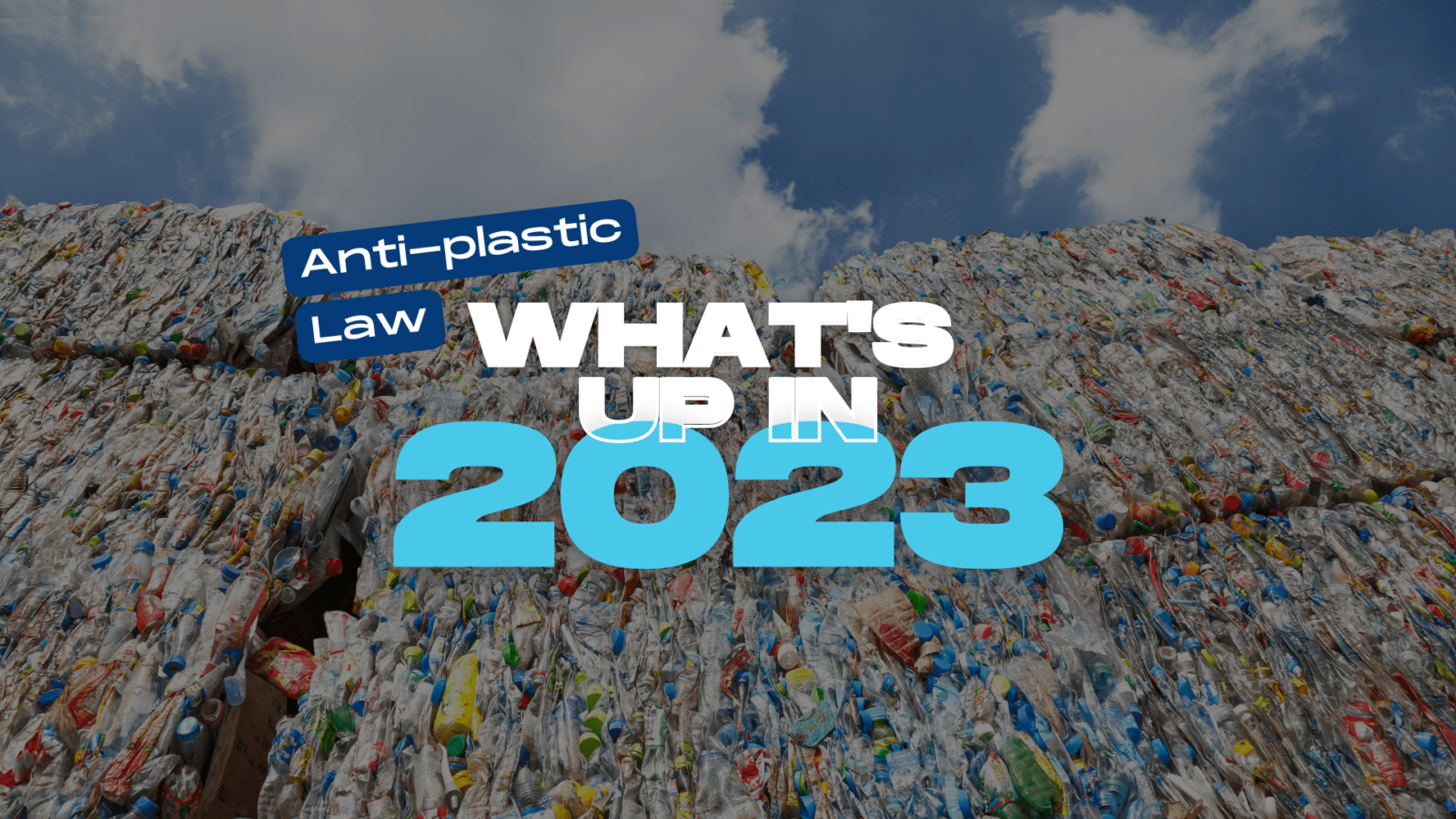So 2022… All those plastics disappearing in 2023 👋 (In France)
Plastic pollution
2 January 2023

Some farewells are more difficult than others. This year, some single-use and/or polluting plastic products are about to go... Get out your tissues (or not), it's time to say bye bye!
The AGEC LAW (Anti-waste law for a circular economy) was enacted in France in February 2020. Composed of more than 130 articles, it aims to integrate environmental issues into public policies and economic practices in order to promote an ecological transition and limit the negative impacts of human activity on the environment.
It has 5 main objectives: to get rid of disposable plastic, to better inform consumers, to act against waste and for solidarity-based reuse, to act against programmed obsolescence and to produce better.
This law includes many key measures, including:
- A ban on certain disposable products such as plastic plates, cutlery and cups by 2040.
- The implementation of an eco-modulation system on household and similar waste to encourage consumers to reduce their waste production.
- The creation of an “ecological transition plan” for companies, which aims to help them integrate environmental issues into their business strategy.
- The implementation of the “extended producer responsibility” (EPR), which obliges producers to bear part of the cost of managing the waste from their products.
The progressive implementation of the AGEC law has already started to change our daily life. Remember January 1, 2021 when we said bye-bye to the free distribution of plastic bottles in establishments open to the public, to expanded polystyrene boxes and to the manufacture of plastic bags. In 2022, it was, among other things, the prohibition of the sale of tea and herbal tea bags made of non-biodegradable plastic and the farewell to plastic toys, offered free to children as part of menus.
Again on January 1, 2023! New advances are planned this year, towards more sobriety. For you, we take stock of what has changed.
1- It’s the end of automatic receipt printing!
Scourge of wallets, purses or the bottom of coat pockets, cash register receipts, ATM receipts and bank cards are on the loose for this new year. A misfortune for Mireille from the accounting department (kiss), true, but don’t panic! Your tickets will now be able to land, on demand, in your mailbox!
The + : These tickets were also composed of Bisphenol F or S, endocrine disruptors. No hard feelings?
2- No more disposable dishes in fast-food restaurants
Fast food outlets with more than 20 seats will no longer be allowed to use disposable tableware in the dining room. This measure is aimed in particular at the big brands: in France, McDonald’s produces more than 115 tons of packaging waste per day.
3- Setting up a repair fund for the fashion & furniture industry
The establishment of a repair fund for the fashion industry aims to support initiatives to reduce waste by encouraging the repair, refurbishment and recycling of clothing. This type of fund can take different forms, such as public or private funding for companies or organizations that set up repair programs, or tax incentives for consumers who choose to repair rather than buy new clothes. The goal is to support a transition to a more sustainable and less wasteful fashion industry.
Recycling, reuse, but not only! The EPR fund also serves to better inform consumers about products, by improving their transparency and traceability. By clearly indicating product characteristics, such as durability and ease of repair, consumers can make more informed purchasing decisions.
4 – The polluter-pays principle is extended!
This means that companies are now responsible for the entire life cycle of their products. They must finance, organize and implement collection, reuse or recycling solutions appropriate to their product
The EPR sectors concerned: The construction site waste and tire industries now join the tobacco industry, toys, sports, leisure, DIY and garden items, cars and vans. In 2024, chewing gum and single-use sanitary textiles will be added to the list, followed by fishing gear containing plastic, as of January 1, 2025.
5- No more trouble with yellow garbage cans
“Does it get recycled or not?” Here’s a question you won’t have to ask yourself in 2023. The AGEC law provides for the harmonization of household packaging sorting rules as of January: all packaging must be thrown into the yellow bin!
Good news that makes us think that things are changing in the world of plastic. But unfortunately, these measures are still insufficient: while plastic production is in a race for unbridled growth, the application deadlines of these laws are far too slow, and some application decrees are even withdrawn before they come into force. This is the case of the end of plastic overpackaging for fruits and vegetables promised for 2022, which was finally cancelled on December 9, 2022 by the Council of State …
